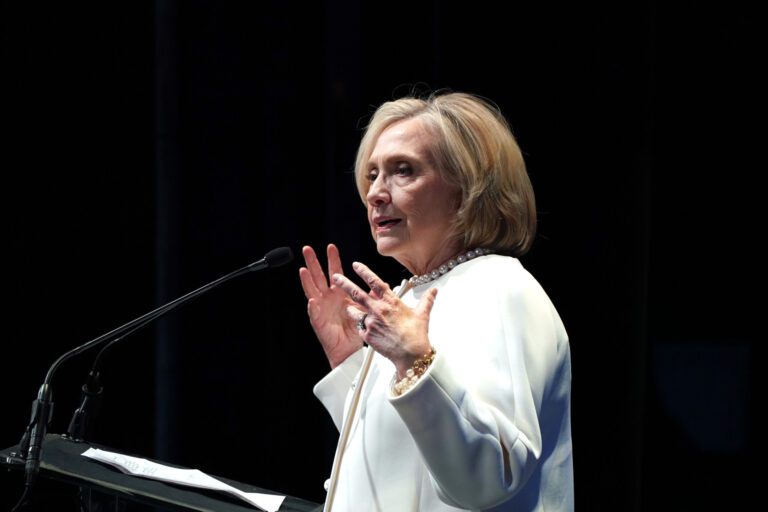Alarming Health Claims Against Hillary Clinton: A Controversial House Intelligence Report
The political landscape surrounding the 2016 presidential election continues to stir debate, particularly with recent claims about former Secretary of State Hillary Clinton’s health. According to a report from the House Intelligence Committee, backed by Tulsi Gabbard, alarming health issues were suggested to have troubled Clinton ahead of the election. This development warrants a closer examination of its implications, particularly regarding alleged actions taken by foreign powers.
Claims of Major Health Concerns
The report states that, as early as September 2016, the Russian Foreign Intelligence Service (SVR) was reportedly aware of Clinton’s deteriorating health. Key points from the document indicate:
- Health Issues: Allegations that Clinton was suffering from “intensified psycho-emotional problems,” which necessitated a “heavy regimen of tranquilizers.”
- Medical Conditions: Reportedly, she also battled Type 2 diabetes, ischemic heart disease, deep vein thrombosis, and chronic obstructive pulmonary disease.
- Secrecy: The intelligence gathered suggested that the severity of Clinton’s health concerns was kept under “strictest secrecy,” even from close advisors.
Influence of Foreign Powers
According to the report, President Vladimir Putin may have been aware of these health issues but strategically chose not to release this information during the campaign. This decision is interpreted as a calculated move to potentially harm Clinton’s political prospects should she win.
Insights on Global Perspectives
Furthermore, the report highlights that allies from key nations—specifically London, Berlin, Paris, and Rome—expressed doubts about Clinton’s ability to serve effectively as President. This discontent from international allies posed significant questions about her potential foreign policy leadership.
Debunking the "Russia Hoax"
In recent discussions, Gabbard and Republican members have been attempting to challenge the narrative surrounding the “Russia hoax,” alleging that:
- Coordinated Actions: The executive branch during the Obama administration was accused of orchestrating a "treasonous conspiracy" aimed at undermining President Trump before he took office.
- Manipulation of Intelligence: Gabbard claimed that intelligence findings were manipulated, suppressing credible evidence that refuted damaging claims against Trump.
“They manufactured findings from shoddy sources. They suppressed evidence and credible intelligence that disproved their false claims,” Gabbard stated at a recent White House briefing.
Such allegations underscore the contention that the intelligence community may have failed to adequately investigate these claims regarding Clinton’s health.
The Republican Perspective
Republicans argue that the intelligence community did not thoroughly investigate these concerns. Their claims suggest that the lack of inquiry hints at a disregard for the veracity of the information surrounding Clinton’s candidacy.
Key Takeaways from the Report
The report posits that:
- Leak Timing: Putin could have chosen to leak information about Clinton’s health in the lead-up to the election but opted against it, suggesting a strategy focused on sowing discord in American politics rather than favoring Trump outright.
- Evidence Presented: The 2020 report, resulting from interviews with intelligence officers, contended that evidence was intentionally left unexplored, further complicating the narrative surrounding foreign influence on the election.
In summary, the uncovering of these health claims against Clinton raises crucial questions about the dynamics of foreign interference and the integrity of American electoral processes. As discussions around these findings continue, both supporters and opponents of Trump remain engaged in intense debate.
For Further Reading
- U.S. Intelligence and Foreign Interference in Elections
- The Health of Political Figures: A Historical Overview
Understanding the implications of these events requires navigating a complex landscape of allegations, political maneuvering, and the ever-present influence of foreign powers on American democracy.


